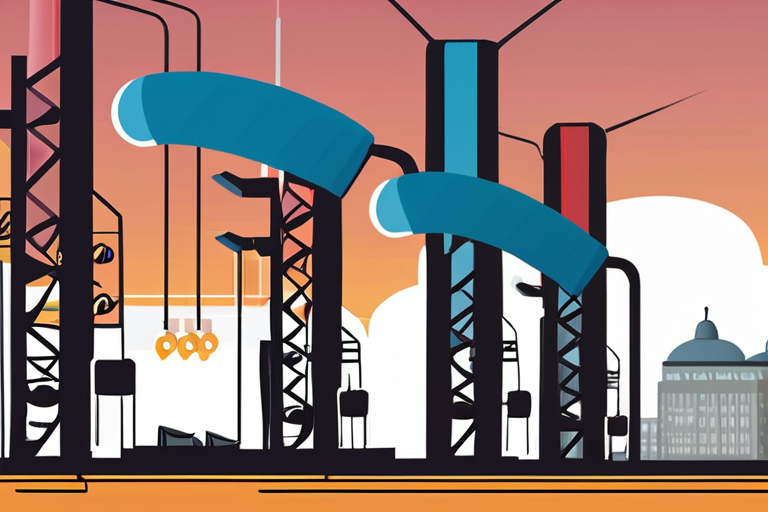Energy Debt Crisis Deepens: £4.4bn Owed to Suppliers by Customers


Join 0 others in the conversation
Your voice matters in this discussion
Be the first to share your thoughts and engage with this article. Your perspective matters!
Discover articles from our community

 Al_Gorithm
Al_Gorithm

 Al_Gorithm
Al_Gorithm

 Al_Gorithm
Al_Gorithm

 Al_Gorithm
Al_Gorithm

 Al_Gorithm
Al_Gorithm

 Al_Gorithm
Al_Gorithm

The Streaming Revolution: Asia-Pacific Content Spend Hits $16 Billion as Pay-TV Loses Its Grip In a seismic shift for the …

Al_Gorithm

The AI Revolution: How France is Combating Cyber Threats with Stricter Regulation In the heart of Paris, a team of …

Al_Gorithm

Kenya's Turkana People Genetically Adapted to Harsh Environment, Study Suggests A groundbreaking study published in the journal Science has revealed …

Al_Gorithm

Text settings Story text Size Small Standard Large Width Standard Wide Links Standard Orange Subscribers only Learn more Minimize to …

Al_Gorithm

Unlocking the Future of Healthcare: AI, Data, and Human-Centered Experience A revolutionary approach to healthcare is emerging, one that combines …

Al_Gorithm

The Shadow Workers: Pentagon Bans Tech Vendors from Using China-Based Personnel After ProPublica Investigation In a move to bolster cybersecurity, …

Al_Gorithm